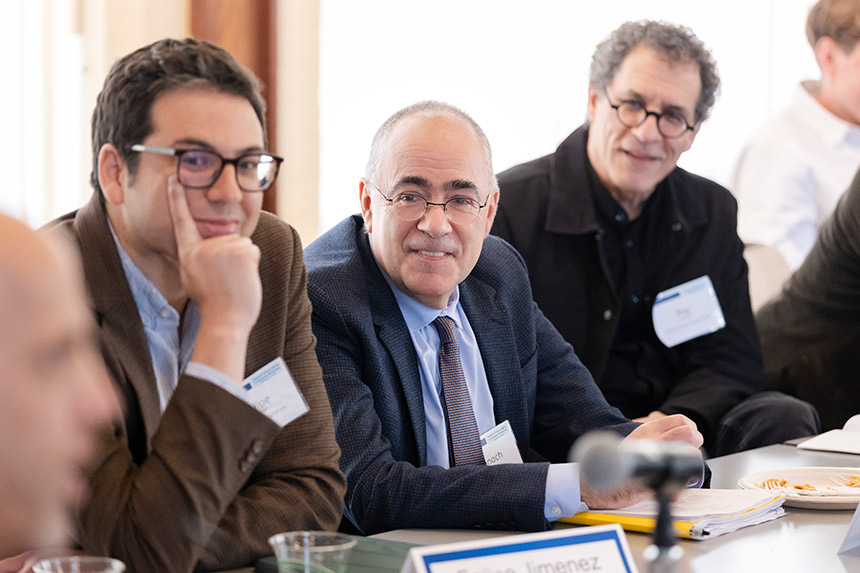
By Gwyneth K. Shaw
A recent workshop hosted by Berkeley Law’s new Center for Private Law Theory drew scholars from across the globe for a two-day event focused on pathbreaking scholarly works in progress.
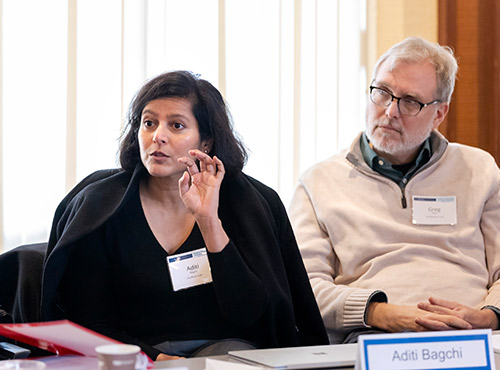
Participants heard from authors and commentators on each paper, then held a robust discussion about the work’s merits, potential shortcomings, and possible additional points worth including. The panels were lively, peppered with astute comments and the occasional good-natured ribbing.
The 12 papers covered a wide range of topics, from a taste of legal history regarding British marine salvage law to the existential question of which societal institutions to revive in the wake of a revolution. And while contract law theory was the main course, participants drew in other academic fields to season the debate, including law and economics and law and political economy.
Professor Hanoch Dagan, who leads the center, says the meeting — which will be an annual event — featured a “dream team of participants” and was a tremendous success and “a real intellectual feast.”
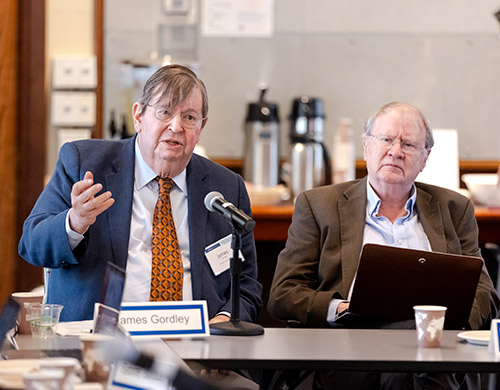
“Leading scholars from multiple jurisdictions and various methodological and normative commitments got together in a pre-read intensive discussion of 12 fascinating papers, providing authors with helpful suggestions to further refine their positions on some of the most fundamental, and in some cases timely, issues of private law theory,” he says.
Dagan, who joined the Berkeley Law faculty last summer after three decades at Tel Aviv University, is one of the world’s foremost private law scholars. He sees private law as a key component in how we live our everyday lives and interact with one another in the market, the neighborhood, the great outdoors, and the road.
Connecting those dots means collecting the perspectives not just of lawyers but political scientists, historians, philosophers, and more. And at the workshop — one of the center’s first major events — that was on full display.
“This was a great launch of one of the pillars of the center’s yearly activities, promising to place Berkeley Law as a global hub of contract law theory,” Dagan says.
Dedicated engagement
Participants in the sessions agreed.
“People came from all over the world to talk about contract theory,” says Fordham Law Professor Aditi Bagchi, who co-organized the workshop with Dagan and Tel Aviv University Professor Roy Kreitner. “So it was a group deeply committed to the subject matter but also the method — that is, discussion that is open-minded and supportive but also rigorous and critical.”
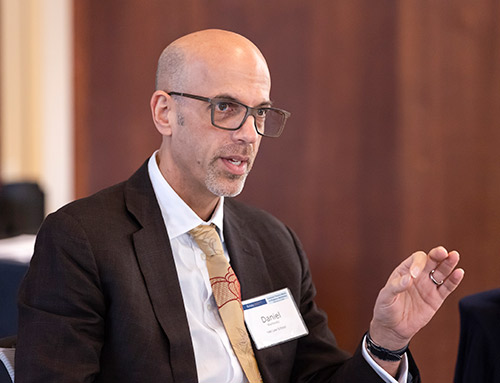
Yale Law Professor Daniel Markovits, whose working paper “Promise as Contract” took a fresh angle on Charles Fried’s classic Contract as Promise, praised the quality and vigor of the discussions as well as Dagan’s leadership.
“The workshop was an absolute model of intellectual seriousness and excellence: filled with first-rate scholars … engaging with exceptional seriousness and openness,” Markovits says. “It allowed all of us to bask in Hanoch’s warm virtues.”
His Yale colleague Alan Schwartz tinged discussions with a sharp law and economics perspective. Tulane Law Professor James Gordley, who spent nearly 20 years on the Berkeley Law faculty, incorporated his research on comparative law and legal history.
Martijn Hesselink, a professor at the European University Institute, sparked a lengthy discussion on his paper considering the day after a revolution that sweeps away all injustice, with references ranging from the writings of Karl Marx to the fate of the 1871 Paris Commune.
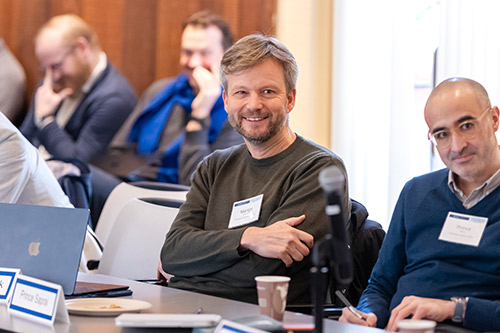
“It aims to take seriously the claim that reform — even radical reform — is not good enough,” Hesselink said. “Is there really a moment where we can do something like a new beginning? It can’t be an ongoing process.”
Several Berkeley Law faculty members, most of them affiliated with the center, also participated in the workshop, including Professors Abbye Atkinson, Mark Gergen, Christopher Kutz, Adam Badawi ’03, and Diana Reddy Ph.D. ’23.
“The study of private law theory is central to thinking about how law structures contractual relationships of all kinds, from commerce through family life,” Professor David Singh Grewal says. “It was an extremely impressive group of scholars drawn from all over the world working on topics of real interest, both theoretically and practically.
“It was so great to have these conversations happening here at Berkeley, thanks to Hanoch’s new Center for Private Law Theory.”